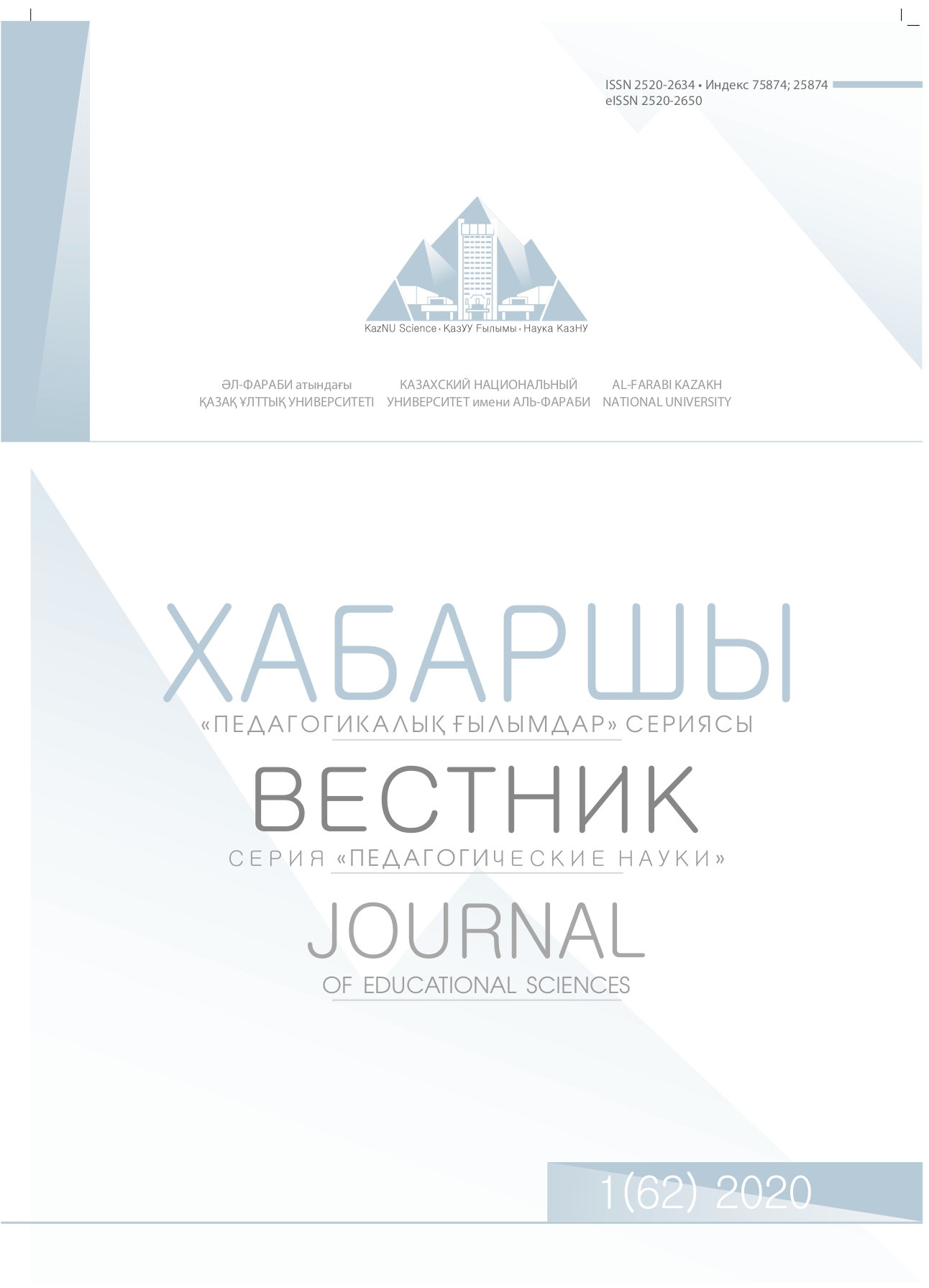Value Potential оf Al-Farabi’s Humane Ideas in the Education of a Virtuous Personality оf Modernity
DOI:
https://doi.org/10.26577/JES.2020.v62.i1.02Abstract
The article deals with the issues of nurturing of future specialists studying at the University, based on the humane ideas of al-Farabi’s treatises. Currently, when training specialists, special attention is paid to their personal qualities, especially for future teachers-the humane orientation of the modern personality. One of the tasks of the integral pedagogical process of the University is to form not only a highly qualified specialist, but also a “good” person. According to Abu Nasir al-Farabi, the manifestation of a person’s character is associated with “repeated good and bad habits”. In this regard, the author analyzes the concept of the great thinker “gooddoer” (“benefactor”) as one of the directions of nurturing. It is described the value potential of a person’s moral qualities, such as kindness, compassion, charity, good manners, courtesy, simplicity, morality, etc. in the article. In practice, the disclosure of the value potential of students ‘”goodness” is possible in the course of training. In particular, the author argues and reveals the methodology of lectures and seminars on the subject “Methods of teaching self-cognition in higher school”. It is established that the textbooks on “self-cognition” for the school actively use the potential of al-Farabi’s works. The educational materials used in the course of classes were selected from textbooks of secondary schools, analyzed and converted into tasks for students on the method of teaching the subject “Self-cognition”. Learning strategies can become the basis for revealing the value potential of the humane ideas of the thinker as a scientist of the Middle Ages, which have not lost their relevance in the ХХI century. Key words: humanity, virtue, personal qualities, al-Farabi, value potential, upbringing, future specialist, learning strategies.















